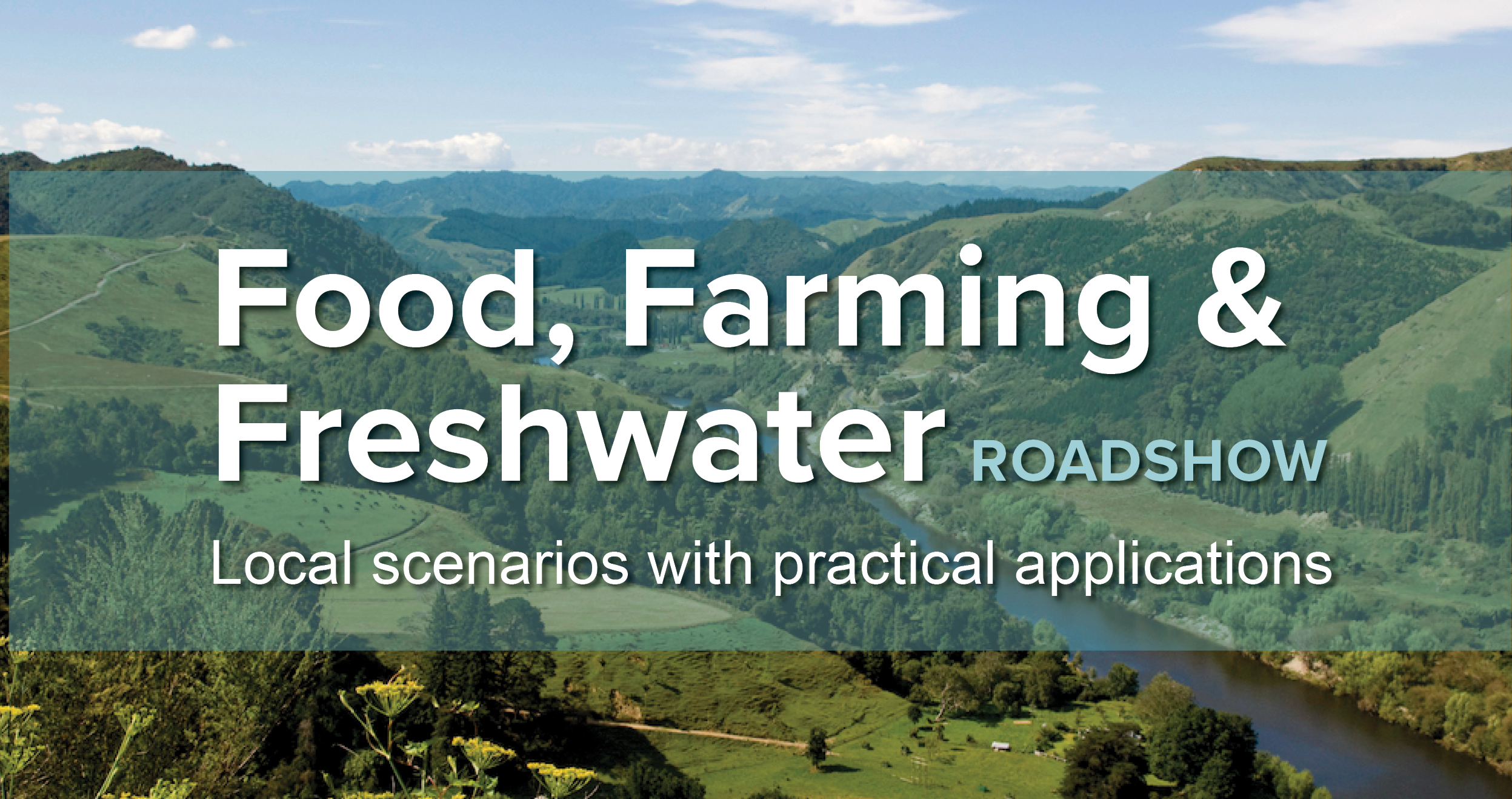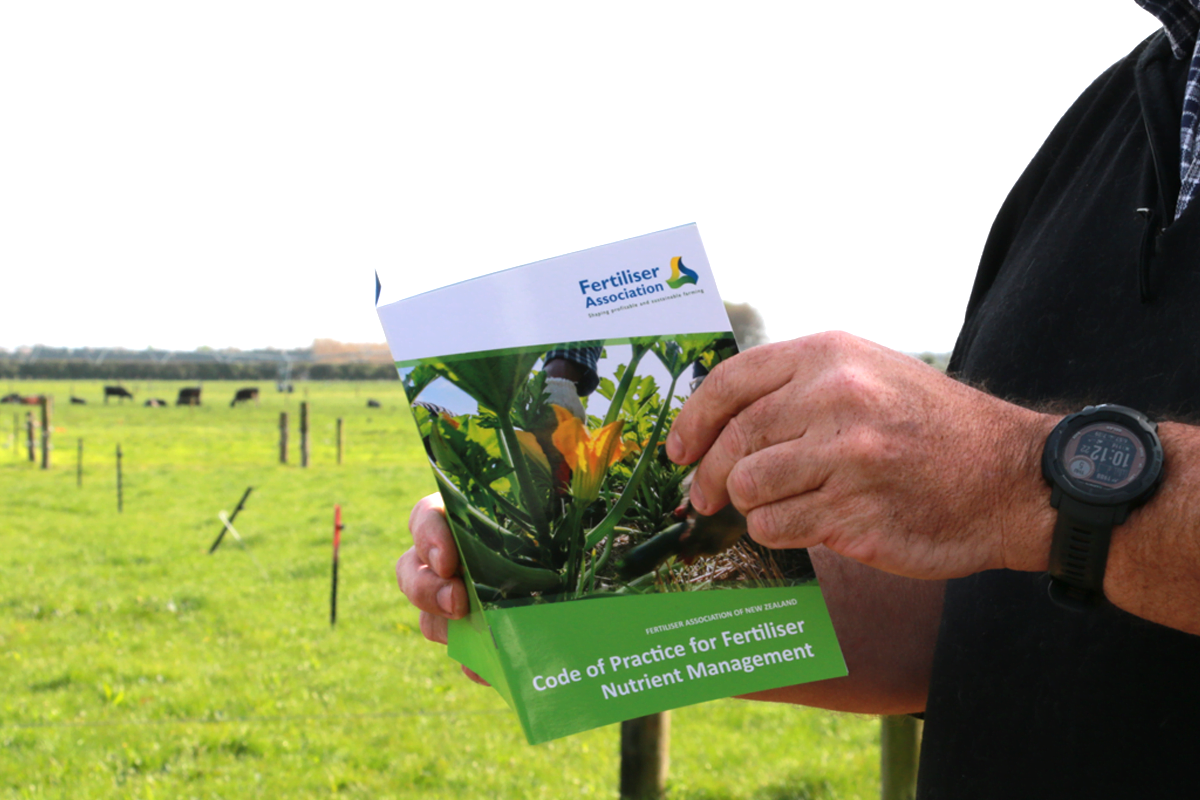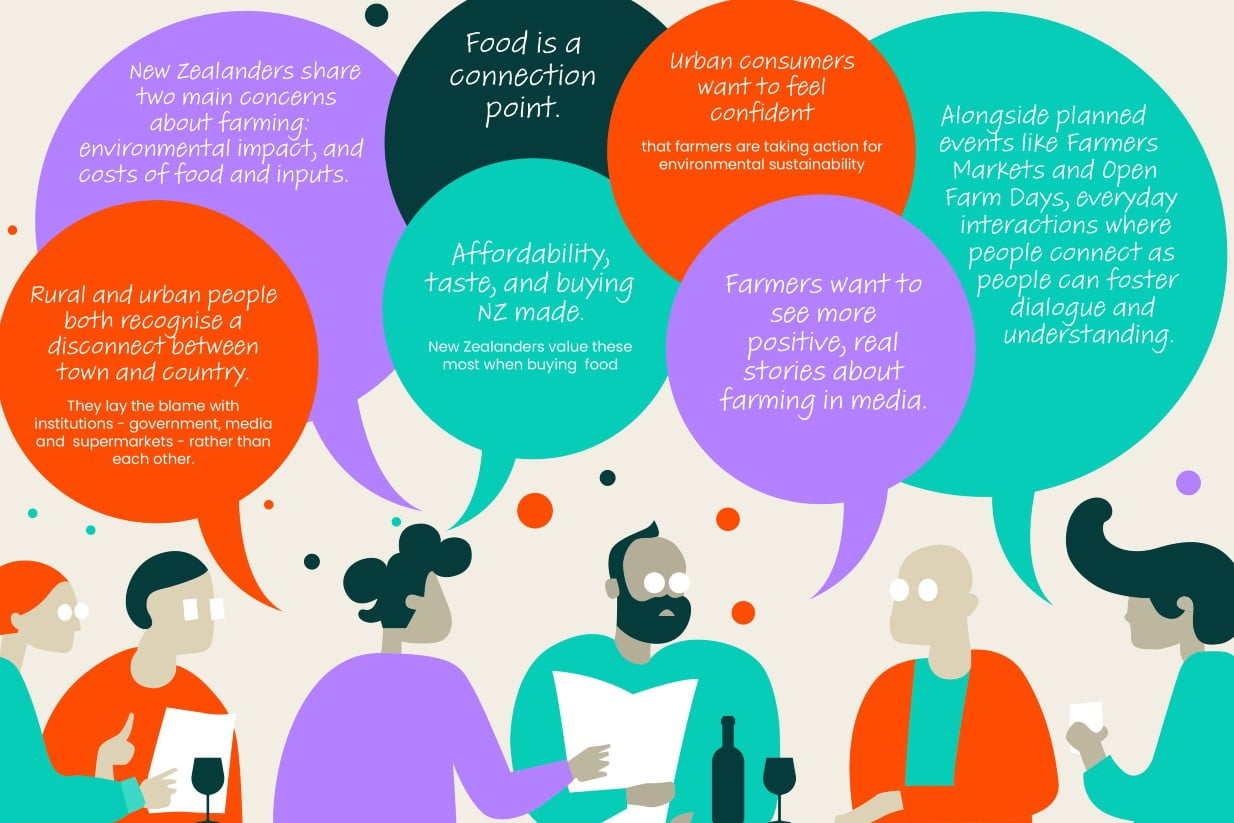Rural and Urban Divide a Myth
The Diverse Experiences of Farming project asked New Zealanders – urban and rural – what they really think about farming. It found no deep divide. Aotearoa New Zealand values our farming sector.
There is a public perception in New Zealand of a deep and antagonistic chasm between rural and urban New Zealanders, supported by stories in media and politics. However, according to new research from Massey University and Our Land and Water National Science Challenge, this divide is not reflected in reality.
Instead, rural communities, farmers, and city dwellers are united in a shared appreciation of the role that farmers play in producing food, providing jobs, and caring for the environment.
The Diverse Experiences of Farming project surveyed and interviewed over 1300 people, and asked New Zealanders – urban and rural – what they really think about farming.
The results surprised the researchers.
“Our research team wanted to test the pervasive idea of the rural-urban divide. Instead of a divide, we found a more complex and richer diversity of opinion about farming than expected,” says social scientist Dr Alice Beban from Massey University’s School of People, Environment & Planning.
“Where we do find antagonism, it wasn’t directed at farmers, but instead at institutions such as government and supermarkets.”
Connection point
Food production is a source of pride for all communities, genders, ages, and ethnicities. While urban consumers were less positive about producing food for export, providing food for New Zealand tables was seen as a valuable contribution. Affordability, taste, and being locally grown were all important considerations in food buying decisions.
Urban and rural New Zealanders also share many of the same concerns when it comes to farming. Cost was the most common concern for both groups, who pointed to rising food costs and the rising costs of farming inputs, says rural scientist Dr Janet Reid, from Massey University’s School of Agriculture & Environment.
Respondents showed a sophisticated understanding of challenges facing the sector such as climate change, high prices, farm debt and increasingly tight regulations.
Both groups also expressed concerns about the environmental impact of farming.
Key insights
The three opportunities to improve trust and support for farming:
- Media, government, and supermarkets can tell more authentic farming stories, which reflect the reality of farming.
- Farmers and primary sector organisations can use farmers' markets, farm open days, social media, and other local connection points to be open and transparent about their issues and practices.
- Stories about farming should use facts and science and cover how farmers are implementing sustainable practices to reduce environmental harms.
Grounds for misunderstanding and distrust
Despite their shared values, farmers and urban residents alike recognise that trust and understanding between town and country is low.
Farmers believe that they know the public’s concerns, but that the public doesn’t connect with them or understand the issues that they face. There is some evidence for this, according to the research.
Areas of real concern for farmers and rural communities – government interference in farming, misinformation, and mental health – are only minimally reflected by urban communities, if at all. Meanwhile, farmers also show concern for the environmental impact of farming, but urban communities express distrust with how farmers are caring for the environment and would like to see evidence of more positive action.
This is particularly a concern for the dairy sector. Both urban and rural groups agree that the sector benefits New Zealand. However, there is little agreement among urban New Zealanders that the sector can be trusted, is transparent, listens to the public, or communicates well.
Surprisingly, neither urban nor rural dwellers blame each other for the disconnect between town and country, instead placing responsibility with government, the media, and supermarkets.
While only farmers believe that they are fulfilling their responsibilities to consumers, there is little to no agreement that other obligations are being met. Specifically, farmers feel let down by government, Māori feel let down by farmers, and everyone feels very let down by supermarkets.
“More than half of urban respondents claimed that supermarkets are the most influential source of information about farming,” says Dr Beban. “Neither urban nor rural consumers believe supermarkets are fulfilling their responsibilities to farmers.”

Building understanding: Where to next?
Not all farmers believe that it is their role to engineer trust in farming among urban New Zealand. However increasing urban understanding of farming can result in improved political and financial support for the issues farmers face.
Urban New Zealanders would like the primary sector to communicate more effectively and openly about farming in New Zealand. This is so that they can be confident that farmers are taking action for environmental sustainability.
“There are diverse views of farming across urban, rural, and farming communities,” says rural scientist and report co-author Dr Janet Reid, from Massey University’s School of Agriculture & Environment.
“But we all agree that the benefits of food and jobs that farming provides are valuable for New Zealand. People genuinely desire engagement in dialogue and want trust and connection. Farmers, government, supermarkets, agribusiness, primary sector organisations, and urban people all have a role in building this connection.”
More information:
Author
 View Our Strategy Document 2019 – 2024
View Our Strategy Document 2019 – 2024




Leave a Reply